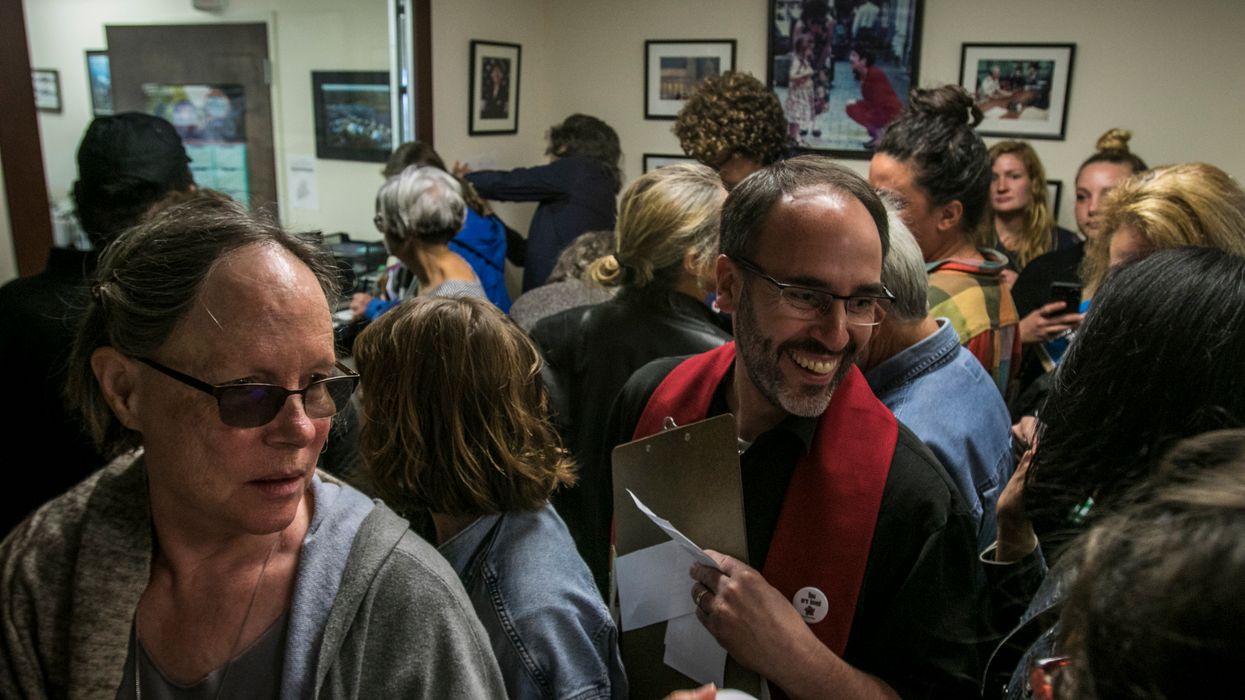Maine, one of the birthplaces of the ranked-choice voting movement, is facing pushback from Republicans who don't want it in the fall presidential election.
Earlier this month the state Republican Party filed paperwork proposing a referendum in November on repealing a law, enacted less than a year ago, allowing Mainers to be the country's only 2020 voters who list their presidential choices in order of preference — with third-party candidate support in all likelihood redistributed to the major party nominees.
Simply gathering the required 63,000 signatures in the next three months would halt the use of so-called RCV on the presidential line in November — which would represent a major setback for an alternative voting system that's been gaining significant national acceptance in recent years.
In 2016, Maine voters approved a referendum adopting ranked voting for all state and federal primary elections and general elections for Congress. Voters overturned a legislative repeal in 2018. Last year, the Legislature extended the system to apply to the presidential election this fall and to the presidential primaries in four years.
Eighteen cities have adopted RCV and additional communities — most notably New York City — will come on board in the near future.
Early voters in the Nevada Democratic presidential caucuses this week are using ranked-choice voting in a limited form. And four other states — Alaska, Hawaii, Wyoming and Kansas — will use it to allocate delegates in their Democratic primaries in April and May.
Advocates of ranked-choice voting say it provides a truer representation of voters' wishes and reduces attacks by candidates on each other. That's because candidates will not want to alienate voters who may support another person. Opponents argue the system confuses voters and strays from fundamental tenets of American democracy.
"One person, one vote is a bedrock American principle," said Demi Kouzounas, chairwoman of the Maine GOP. "Ranked-choice voting is a direct violation of that principle and threatens the rights of all Mainers and delegitimatizes our election process."
Kathleen Marra, chairwoman of the Maine Democratic Party, responded by saying "this new attempt is nothing more than an effort to protect President Trump and reject the will of the voters."
Getting the referendum on the ballot would not interrupt the use of RCV in down-ballot contests. Maine is hosting one of the hottest Senate races in the country, with incumbent Republican Susan Collins facing Democratic state House Speaker Sara Gideon and a handful of minor candidates. Democrat Jared Golden, who won an upset election to the House two years ago with the benefit of an RCV surge when first-round ballots were redistributed, is being challenged intensely in his re-election bid.
Maine has voted Democratic in seven straight presidential contests, but in 2016 Donald Trump was able to secure one of its four electoral votes. Maine and Nebraska are the only two states where those votes are not awarded winner take all.





















